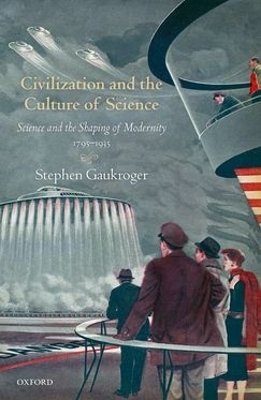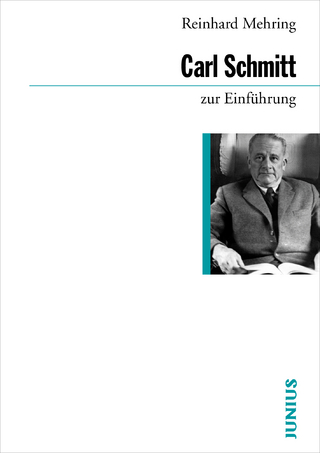
Civilization and the Culture of Science
Oxford University Press (Verlag)
978-0-19-884907-0 (ISBN)
How did science come to have such a central place in Western culture? How did cognitive values--and subsequently moral, political, and social ones--come to be modelled around scientific values? In Civilization and the Culture of Science, Stephen Gaukroger explores how these values were shaped and how they began, in turn, to shape those of society. The core nineteenth- and twentieth-century development is that in which science comes to take centre stage in determining ideas of civilization, displacing Christianity in this role. Christianity had provided a unifying thread in the study of the world, however, and science had to match this, which it did through the project of the unity of the sciences. The standing of science came to rest or fall on this question, which the book sets out to show in detail is essentially ideological, not something that arose from developments within the sciences, which remained pluralistic and modular. A crucial ingredient in this process was a fundamental rethinking of the relations between science and ethics, economics, philosophy, and engineering. In his engaging description of this transition to a scientific modernity, Gaukroger examines five of the issues which underpinned this shift in detail: changes in the understanding of civilization; the push to unify the sciences; the rise of the idea of the limits of scientific understanding; the concepts of 'applied' and 'popular' science; and the way in which the public was shaped in a scientific image.
Stephen Gaukroger, who was educated at the University of London and the University of Cambridge, is Emeritus Professor of History of Philosophy and History of Science at the University of Sydney. He is author of fourteen books and the editor of nine collections of essays. His recent publications include The Emergence of a Scientific Culture: Science and the Shaping of Modernity, 1210-1685 (Oxford 2006), The Collapse of Mechanism and the Rise of Sensibility: Science and the Shaping of Modernity, 1680-1760 (Oxford 2010), and The Natural and the Human: Science and the Shaping of Modernity, 1739-1841 (Oxford 2016). His work has been translated into Arabic, Chinese, French, German, Italian, Portuguese, and Russian.
Part I: Civilization
1: Science and the Origins of Civilization
2: The Evolution of Civilization
Part II: The Unity of Science
3: The Promotion of Unification
4: The Unity of the Physical Sciences
5: The Autonomy of the Material Sciences
6: The Autonomy of the Life Sciences
7: The Unity of the Life Sciences
Part III: The Expansion of Scientific Understanding
8: The Problem of the Human Sciences
9: Understanding the World: Science or Philosophy?
Part IV: The Pursuit of Science by Other Means: 'Applied' and 'Popular Science'
10: Technology and the Limits of Scientific Theorizing
11: Science for and by the Public
Part V: Science and the Civilizing Process
12: The Modernization of the Population: Accommodating the Human to the Scientific Image
Conclusion
13: Science and the Shaping of Modernity
| Erscheinungsdatum | 03.01.2020 |
|---|---|
| Reihe/Serie | Science and the Shaping of Modernity |
| Verlagsort | Oxford |
| Sprache | englisch |
| Maße | 160 x 241 mm |
| Gewicht | 816 g |
| Themenwelt | Geisteswissenschaften |
| Naturwissenschaften | |
| Sozialwissenschaften | |
| ISBN-10 | 0-19-884907-9 / 0198849079 |
| ISBN-13 | 978-0-19-884907-0 / 9780198849070 |
| Zustand | Neuware |
| Haben Sie eine Frage zum Produkt? |
aus dem Bereich


